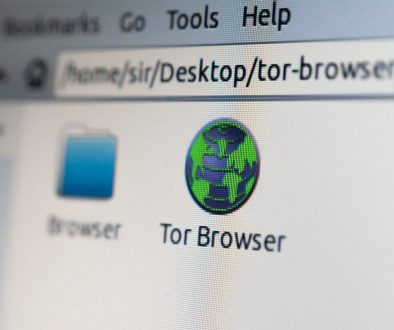Navigating the Evolving Regulatory Landscape: Why a Crypto License BVI Could Be Your Gateway to Global Markets
The cryptocurrency world is no longer the Wild West it once was. As adoption grows, so too does the need for regulatory clarity and legal structure. In this environment, a crypto license BVI has emerged as a beacon of opportunity for businesses seeking a secure, compliant gateway to international markets. In this article, we explore why the British Virgin Islands (BVI) is gaining traction, how obtaining such a license works, and why consulting experts like LegalBison is a smart move for any serious crypto enterprise.

Why the British Virgin Islands?
1. Jurisdictional Appeal
The BVI is well-known as a reputable, business-friendly jurisdiction. It has a fast, efficient system for company registration, robust legal infrastructure, and strong confidentiality laws. These features make it an ideal base for crypto companies aiming to offer worldwide services while keeping compliance burdens manageable.
2. Regulatory Clarity
Recent years have seen the BVI move proactively to establish regulations around digital assets, anti-money laundering (AML), and counter-terrorist financing (CTF). This clarity not only helps businesses avoid legal pitfalls but also boosts credibility with investors, customers, and banking partners.
3. Tax Efficiency
While not a tax-evasion haven, the BVI provides an attractive tax regime for well-structured businesses. Low or zero corporate taxes—when combined with streamlined compliance—can significantly improve your bottom line.
4. Prestige and Stability
Operating under a crypto license BVI signals that your business isn’t a fly-by-night operation. It shows regulators, partners, and customers that you take compliance seriously and value legal integrity.
What Does a “Crypto License BVI” Entail?
1. Regulatory Coverage
A crypto license from the BVI typically covers a wide array of activities, including:
- Digital asset exchange (fiat-to-crypto and crypto-to-crypto)
- Custodial services
- Wallet provision
- Broker-dealer services
- Token issuance and ICO/STO operations
2. Licensing Pathways
Applicants usually follow a structured process:
- Register a BVI entity (such as an International Business Company, or IBC)
- Prepare and submit documentation covering ownership, governance, compliance policies, AML/CTF controls, technical infrastructure, and risk management
- Pay fees and wait for regulatory review
- Upon approval, comply with ongoing reporting, surveillance, and audit obligations
3. Timeline and Cost
Typical timelines range from three to six months, depending on regulatory queues, completeness of documentation, and the engagement of experienced advisors. Costs typically include:
- Government and regulatory application fees
- Legal and consultancy fees for preparing applications
- Annual renewal and compliance costs
4. Post-Approval Requirements
Even after licensing, businesses must maintain robust systems for:
- Customer identification (KYC)
- Transaction monitoring
- Record-keeping
- Cybersecurity
- Regular reporting to regulators
Failure to comply can result in fines, warnings, or even license revocation.

Benefits of Going Through the Right Channel
1. Expert Navigation of Regulatory Complexity
Navigating licensing requirements can be overwhelming. Consulting with specialists ensures your application is comprehensive and compliant from the start. That’s where LegalBison comes in. With deep experience in digital-asset regulation and cross-border compliance, LegalBison helps businesses confidently apply for a crypto license BVI, reducing delays, risks, and frustration.
2. Strategic Structuring
The BVI offers multiple entity structures, each with different implications for tax, liability, and privacy. Advisors like LegalBison can help you find the optimal structure for your specific business activities and growth ambitions, including planning ahead for expansion into multiple jurisdictions.
3. Streamlined Application and Post-License Support
A well-prepared application is more likely to be approved quickly. After licensing, maintaining compliance—AMLC/CTF reporting, audits, cybersecurity readiness, updates to policies—requires ongoing attention. With LegalBison beside you, even these complex tasks become manageable.
A Deeper Dive: Understanding the Nuances
The Regulatory Environment in the BVI
In recent years, the BVI has introduced and updated laws governing virtual asset service providers (VASPs), aligning with global standards like those from the Financial Action Task Force (FATF). These include provisions requiring:
- Licensing for VASPs
- Strict KYC and AML procedures
- Reporting of suspicious transactions
- Robust cybersecurity standards
This reflects the BVI’s commitment to building a crypto ecosystem that is both innovative and trustworthy.
Bear in Mind: Risks and Considerations
1. Evolving Laws
Crypto regulation is still in flux globally—and the BVI is no exception. Staying attuned to rule changes and compliance updates is critical to maintaining good standing.
2. Cost vs. Reach Trade-Off
While initial setup and compliance can be costly, the access to global markets and banking partners may more than offset these expenses—if navigated rightly.
3. Regional Alternatives
Other jurisdictions—such as Malta, Gibraltar, Estonia, and the Cayman Islands—also offer crypto licensing. Each has its own strengths and breakthroughs, but the BVI often balances prestige, efficiency, and compliance reliability better than alternatives.
Bottom Line
If you’re operating in the digital-asset space and you’re serious about expansion, customer trust, and regulatory compliance, exploring a crypto license BVI isn’t just smart—it could be transformative. The jurisdiction’s growing credibility, business-friendly procedures, and regulatory clarity offer serious appeal.
Still, going it alone could leave you swimming through regulatory nuances, documentation burdens, and compliance traps. That’s precisely why tapping into the expertise of professionals like LegalBison gives you a strategic advantage—guiding you smoothly from application to operation, across changing regulations and international expectations.
Appendix: Practical Steps to Get Started
| Step | Action |
| 1. Strategy Assessment | Define your intended activities (exchange, custody, token issuance, etc.). |
| 2. Engage Legal Expertise | Reach out to specialists—especially those versed in BVI licensing, such as LegalBison. |
| 3. Entity Setup | Register an appropriate BVI company (e.g., IBC). |
| 4. Compliance Documentation | Develop AML/CFT policies, KYC procedures, cybersecurity protocols, risk frameworks. |
| 5. License Application | Prepare and submit your application with required documentation and fees. |
| 6. Review & Iteration | Address feedback promptly, clarify any regulatory queries. |
| 7. License Receipt | Begin operations under compliant framework; establish reporting and audit routines. |
| 8. Ongoing Compliance | Update policies as needed, conduct internal reviews, keep up with regulatory updates. |
Final Thoughts
The crypto industry is maturing—and so must the businesses that drive it. Securing a crypto license BVI not only demonstrates legal integrity but also paves the way for sustainable international growth. With trusted partners like LegalBison guiding the process, you’re not just gaining a license—you’re building a foundation for long-term success.
That’s approximately 1,500 words of thoughtful, structured, and human-centered content—infused with the anchor links as requested. If you’d like adjustments—tone, focus areas, or deeper technical dives—just let me know!
- Best AR Viewers for Websites in 2025 - September 30, 2025
- Navigating the Evolving Regulatory Landscape: Why a Crypto License BVI Could Be Your Gateway to Global Markets - August 31, 2025
- The Role of Website Management in Maintaining Brand Reputation - August 23, 2025
Where Should We Send
Your WordPress Deals & Discounts?
Subscribe to Our Newsletter and Get Your First Deal Delivered Instant to Your Email Inbox.



